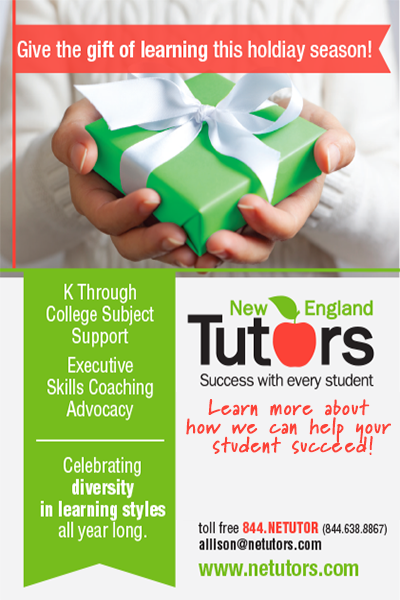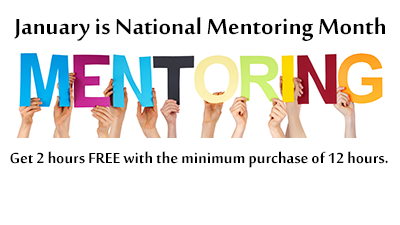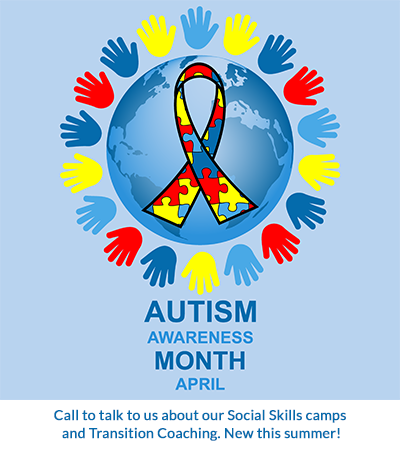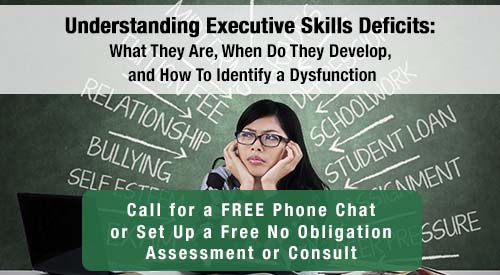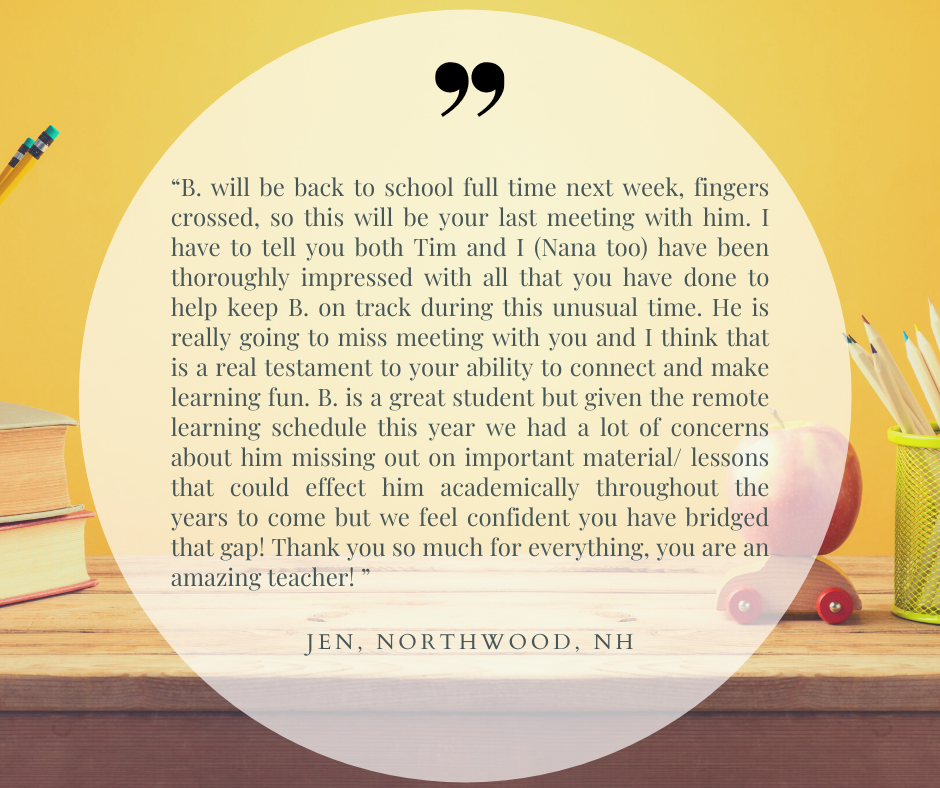In this discussion of Executive Skills, we’ll take a look at just what these skills are, what ES weaknesses look like and some strategies for managing and teaching them. Peg Dawson, Ed.D, with whom we are working to develop this new program, gives examples of what they are exactly and how they help us move through our lives. Students with Attention Disorders or who are on the Autism Spectrum often lack Executive Function Skills. These skills help us plan, organize, make decisions, shift between situations or thoughts, control our emotions and impassivity, and learn from past mistakes. That means a student without good executive function skills struggles with tasks that involve analyzing, planning and organizing, among others. Take a look at this power point by Peg for more information.
Here’s a list that helps us recognize these weaknesses (this is mostly for teenagers):
- Forgets directions
- Forgets to bring back materials back and forth between home and school
- Runs out of steam before finishing work
- Leaves trail of belongings wherever they go
- Sloppy work
- Loses or misplaces things (books, permission slips, cell phone, lunch money, etc.)
- Messy desk/cubby areas/backpack/room
- Acts without thinking, interrupts others
- Overreacts to small problems
- Upset by changes in plans
- Low tolerance for frustration
- Does not see their behavior as part of the issue
Some of the things that you can identify in younger children are:
- Weak impulse control – blurting out inappropriate things; engage in risky behaviors
- Weak emotional control – overreacting; trouble dealing with criticism
- Rigid thinking – don’t roll with the punches
- Weak working memory – trouble remembering directions, even after repeated tries
- Weak self-monitoring – surprised by negative feedback or bad grades
- Weak planning and prioritizing – don’t know which parts of a project are most important
- Weak task initiation – freezing up, can’t begin something
Weak organizing – losing train of thought as well as personal possessions ES weaknesses in adults encompass some of the same weaknesses that we find in younger people, but
with sometimes more serious and grave consequences, such as weak emotional control leading to inappropriate and dangerous behavior, an inability to prioritize at work, sloppy work habits, engaging in risky and dangerous behavior. A good self-test can be found here at our website (need link).
Now I know I’m rushing headlong in this blog, but I want to get to what things can be done to overcome these weaknesses, if only in an introductory way. As you can imagine, teaching these concepts to our tutors and our students takes a bit longer. But briefly, here are some strategies for managing ES skill weaknesses:
- Change the physical or social environment (seating arrangements, fewer kids – more adults, class helpers, fewer distractions).
- Modify the tasks we expect the child to preform (shorter tasks, break task down into smaller steps, more breaks, visual schedule, give choices of topic, turn in date, change the order, give a start and end point).
- Change the way adults interact with the child (role-play situations and their response, use verbal prompts, use checklists, effective praise – 4 positives for each corrective feedback).
These strategies, while obviously for the classroom setting, can be used at home with our children. For example, let’s look at the simple (but TOTALLY frustrating) state of our children’s rooms. Here’s one way to handle this:
To help get a clean room: Parents act as an external organizational system to help the child perform the following functions and gradually turns control over to the child as he/she demonstrates readiness:
- Develop a plan, an organizational scheme, and a specific set of directions (clean clothes are folded in drawer, toys in toy box, shoes in closet, dirty clothes in hamper, etc.)
- Provide the same information without being the direct agent; create a list, picture cues, audio tape, checklist to cue child.
- Parent begins to transfer responsibility to child (Parent asks “Where do you want to start in picking up your room? Toys? Clothes?”)
- Positive re-enforcement when emerging skills are used.
- How to know transfer is complete. (Child can ask himself, “What do I need to do? Check my list.”)
Of course, in some cases, even this is too far advanced, for example when a child first needs to know how to pay attention. (We have strategies for teaching this, too!) We also have checklists for young children and teenagers, for example, our “Parents of Teenagers Survival Checklist.” You may apply the word “survival” to either the parents or the teenager…or both! There are also checklists for college readiness, self-assessments that children can take, with or without guidance if necessary, and others.
Where to begin? What’s a parent to do? Many families we work with start the process with a neuro-psychological exam. NESCA – Neuropsychology & Education Services for Children & Adults is a group of practitioners located in Newton, MA and Londonderry, NH. Here’s how they talk about this evaluation. You might find it helpful to look it over. Our next blog will deal with this exam in more depth. Please look for it.
Going back to the first blog on Executive Skills, I mentioned that we were putting a lot of effort into the job of teaching students to “learn how to learn.” Our collaboration with Peg Dawson and others in the field (names?) has proved invaluable to us in recognizing and overcoming the weaknesses that keep students from doing just that…learning how to learn. And while these discussions have packed a lot of information into a few blog entries, you can see how important the whole concept of Executive Skills is to the fields of parenting, teaching, tutoring, and coaching.
As usual, we urge you to contact us if you have questions or suggestions. And of course, if you recognize Executive Skill weaknesses in yourself or your child, please do give us a call. We can put you on the right track.
We welcome your participation, either through blog comments or though other contacts with us. You can help us implement our motto: Success with Every Student.
Want to know more? Interested in the concept? Call us to day to find out more about our Executive Skills Coaching Programs: 844-NETUTOR (844-638- 8867).


